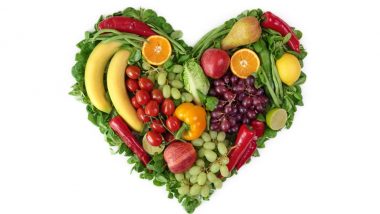World Meatless Day or International vegetarian day is celebrated today on 25th Nov of every year to cherish vegetarianism. In India, the Stop All Killing Association (SAK), Meatless Day campaign, began in the year 1986. It was started by the Sadhu Vaswani Mission, a social service organisation with an aim to serve the poor. People are turning into vegans or vegetarians stating that it is a healthier way of life or not to be cruel against animals. While whatever the reason may be, there is a growing number of people ditching meat as a part of their lifestyle. Many people and experts also claim that it is, in fact, healthier to be vegetarian. Vegetarianism is claimed to be as one of healthiest ways of eating that can protect our health and immunity. International Meatless Day 2018: Why Is World Vegetarian Day Celebrated on November 25? Watch This Narendra Modi-Aamir Khan Video Ad.
Having said that, meat too has a lot of health benefits but not that a non-vegetarian diet can not fetch all those nutrients. Here are a few reasons why vegetarianism is exceptionally healthy. Benefits of Vegetarianism According to Ayurveda.
1 Lowered Risk of Type 2 Diabetes
A review under the Academy of nutrition and diabetics believe that a vegetarian diet can reduce the risk of diabetes. Along with a lower Body Mass Index (BMI), vegetarians, a lower blood pressure, a low-density lipoprotein cholesterol levels, and lower rates of hypertension. They also have a lower rate of type 2 diabetics. Vegetarians are less likely to be obese and hence are also less likely to have Type 2 diabetes. What's The Difference Between Vegetarian and Vegan Diet?
2 Lower the Risk of Cancer
A review by the World Cancer Research Fund describes that a vegetarian diet could decrease the risk of colorectal cancer by 20 per cent as they are spared from eating processed meats like bacon, salami, etc.
3 Heart Healthy
A vegetarian diet is known to reduce the risk of heart diseases by thirty-two per cent. By being a vegetarian, you can help lower your cholesterol levels and blood pressure levels.
4 Lower Cholesterol and Blood Pressure
A balanced vegetarian diet can be rich in soluble fibre which can, in turn, help control cholesterol levels, blood pressure. It can also help solve digestive issues. Foods like Soya and nuts have known to lower cholesterol levels low.
5 Reduced Saturated Fat
Fat intake is reduced way more via vegetarian diets than the non-vegetarian ones. Going meatless can reduce the saturated fat intake that is very harmful to health. Meat has about four times more fat that vegetarian options like lentils, beans etc., studies suggest.
6 Longer Life Expectancy
Studies believe that vegetarians may live longer than non-vegetarians on an average. A 2013 US review found out that over 73,000 people found a vegetarian diet reduced all-cause mortality by 12 per cent.
7 Improved Skin Health
Veggies are known to be great for skin. Packed with minerals, vitamins and antioxidants, etc. vegetarian diets can not only improve skin health but also improve the quality of hair. Eating carotenoid-packed vegetables can help prevent damage done by UV radiations.
8 Reduce the Development of Cataracts
Research done of cataracts and diet for eye health, found out that vegetarian diet reduces the risk of developing cataracts. Vegetarians have the lowest risk of developing cataracts in comparison to the non-vegetarians.
9 Lowered Risk of Kidney Stones
Decreasing animal protein consumption from the diet and increasing the consumption of vegetable is known to result in a higher urine pH. A low urine pH has been associated with the formation of stone in the Kidneys.
Vegetarians are also at a lowered risk of chronic diseases and also usually do not put on much weight in comparison to regular meat-eaters.
(The above story first appeared on LatestLY on Nov 25, 2018 09:42 AM IST. For more news and updates on politics, world, sports, entertainment and lifestyle, log on to our website latestly.com).













 Quickly
Quickly


